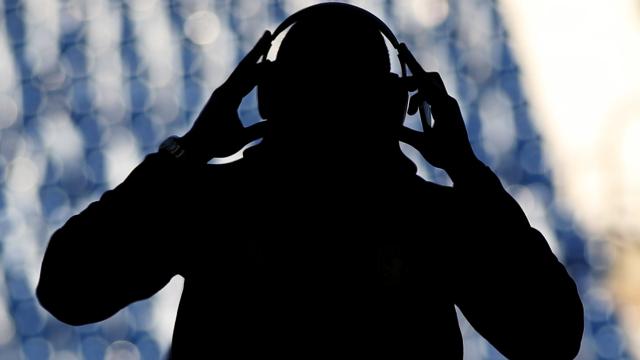A dose of music might be enough to calm your worries before certain medical procedures. According to a new study out this week, patients who listened to music before having anaesthesia injected into them had their level of anxiety lowered as much as those who took a mild sedative.
Doctors have gradually started to turn to the power of music as a way to help patients relax before, during and after major procedures, including surgery, with promising results.
One procedure that music should ideally help with is called a temporary nerve block, where doctors inject a local anaesthetic into a region of nerves to provide pain relief. Patients can be understandably anxious about the operation, so they’re typically given a sedative first.
There are plenty of reasons, though, why doctors and patients would want to avoid using this sedative if possible — not the least of which is that these drugs may have their own stressful side-effects, such as trouble breathing or paradoxically becoming more frantic and agitated.
But according to lead author Veena Graff, an anaesthesiologist and pain specialist at the University of Pennsylvania’s School of Medicine, there’s never been research directly comparing the use of music to the standard treatment for this procedure.
[referenced url=” thumb=” title=” excerpt=”]
Their study, published this week in Regional Anesthesia & Pain Medicine, recruited 160 relatively healthy patients scheduled to get a nerve block. Half were randomly assigned to hear music through noise-cancelling headphones, while the rest got the sedative.
All told, they found that both groups experienced a similar drop in their anxiety (as measured by a short survey taken by the patients) from before to after the procedure. The doctors themselves also reported no difference with how well they felt the procedure had gone.
People who got the sedative did report slightly more satisfaction with how the procedure went, though. And in the music-listening group, both patients and doctors reported having more trouble communicating with one another during the procedure — likely on account of the noise-cancelling headphones.
Still, the study seems to show that there are no major added risks on people’s mental state during these procedures if they listen to music instead of taking a sedative. And it might make certain people’s experiences pre- or post-surgery much less of a hassle, too, Graff noted.
“Anyone can benefit from using music instead of pre-medication; it avoids the use of using medication altogether for sedation,” she told Gizmodo in an email.
“But some people who might benefit even more are individuals who really do not like the feeling of being sedated; individuals who have several medical issues where the sedation might be more detrimental to them; or same-day surgeries where patients can recover quicker because they did not get much sedation.”
There might even be ways to boost the calming effect of music. In the study, the team used a song made by the eclectic UK band Marconi Union that was developed in conjunction with sound therapists and released in 2011, called “Weightless”. The eight-minute song was specially designed to be as relaxing to patients as possible.
But since nowadays everyone has their own meticulously crafted Spotify playlists on their iPhone, playing a patient’s favourite song might be better at anxiety relief.
“Right now, we live in a world where music is ubiquitous. Many individuals have smartphones and media player devices where music is readily available,” Graff said.
The best way we can really test out and improve the benefits of music as medicine, Graff said, is for hospitals to start offering it more routinely as an option alongside standard pre- and post-surgery treatments for pain and anxiety. To that end, Penn Medicine’s outpatient surgery centre now provides disposable headphones to anyone who wants to jam out before their procedure.
“I do know that there are other institutions trying to implement music in their day-to-day practice, but there is more work to be done on this front,” she said. “I’m hoping that one day this will be a routine option that can be offered to all patients in the healthcare setting.”
